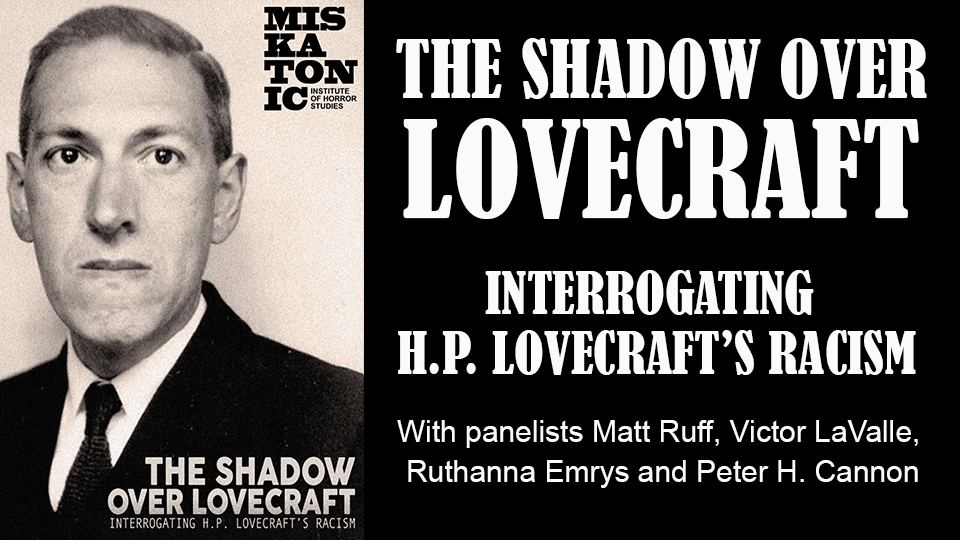With guest speakers Matt Ruff (author, Lovecraft Country), Victor LaValle (author, The Ballad of Black Tom), Ruthanna Emrys (author, The Innsmouth Legacy series) and longtime Lovecraft scholar Peter H. Cannon, moderated by author, lawyer and Miskatonic Board member Rodney Perkins.
Note: This class goes live at http://vimeo.com/ondemand/shadowoverlovecraft at 12:00 Noon on Thursday Aug 20th, 2020.
This historic class is behind a paywall for a limited time, from August 20, 2020 – September 20, 2020 to raise funds for Black Lives Matter. 70% of proceeds from purchase or rental of this class during this period will be donated to Black Lives Matter charities.
There is no denying that H.P Lovecraft was a racist. Though racism was not uncommon in his day, and some have argued that this excuses his attitudes, his racism and xenophobia were especially vehement, even for his time. These attitudes are directly apparent not only in an infamous 1912 poem denigrating those of African descent, but in journal entries and personal correspondences, as well as both directly and allegorically in his fiction.
Often held as Lovecraft’s most racist horror story, The Horror at Red Hook was addressed, revised and reclaimed by writer Victor LaValle in his brilliant, multiple award-winning novella The Ballad of Black Tom in 2016, which reconfigures the perspective of the story to that of African American protagonist Charles Thomas Tester, which Locus magazine praised for “co-opting Lovecraft’s epic-scale paranoia into the service of a trickster tale.”
The same year saw the release of Matt Ruff’s novel Lovecraft Country, which similarly explores issues of race in Lovecraft’s work through its tale of an African American science fiction fan named Atticus Turner, traversing through New England during the heyday of the Jim Crow laws in search of his missing father.
The release of both of these books – coincidentally in the same week – prompted renewed questioning into the legacy of Lovecraft’s fiction for a legion of fans and fellow writers who have found magic in his Mythos and Cosmic Horror, easily one of the most influential strands of horror in literary history. But does Lovecraft’s racism overshadow his incredible contributions to the field? Should Lovecraft be demoted in the pantheon of horror writers based on his personal ideologies? Can people of those races and ethnicities Lovecraft directed hate towards still find value his work?
This momentous class that took place at Miskatonic NYC in April of 2019, moderated by Miskatonic board member, author and festival programmer Rodney Perkins, features special guest speakers longtime Lovecraft scholar and Mythos author Peter H. Cannon and authors Victor LaValle, Matt Ruff and Ruthanna Emrys – whose debut novel Winter Tide (2017) was called “A mythos yarn that totally reverses the polarity on Lovecraft’s xenophobia, so that in the end, the only real monsters are human beings.”

